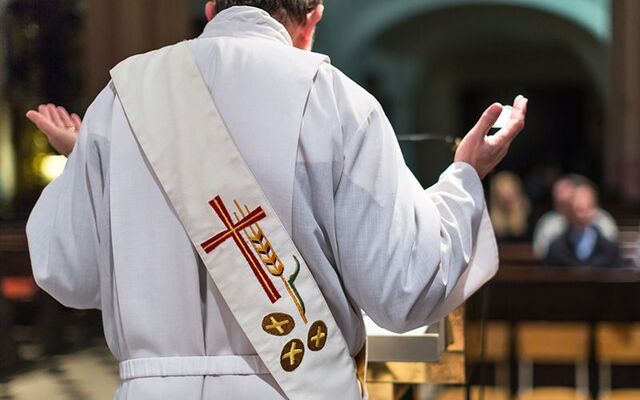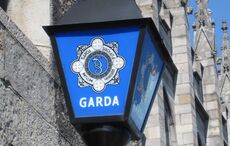Irish Catholic Bishops are calling on the faithful to dedicate tomorrow, Friday, June 6, as a day of prayer and fasting as part of their urgent appeal for peace and solidarity.
The Irish Catholic Bishops' Conference said this week that the plea comes amid the "deepening humanitarian crises in Gaza, Ukraine, Sudan, and other conflict zones."
The Bishops described Gaza’s situation as “a humanitarian catastrophe,” and voiced grave concern over the reports of starvation, blocked aid, and continued bombardments.
“Our parishioners are reporting their horror and helplessness on seeing images of death and communal destruction in Gaza," the Irish Catholic Bishops said.
“Exhausted mothers can no longer nourish their young, children are dying of malnutrition, while aid lorries full of supplies are being refused entry into the territory, or are not safely arriving at their destination.”
Bishops are calling on the faithful to turn to prayer during this month of June, which they note is traditionally dedicated to prayer to the Sacred Heart of Jesus, asking for “an outpouring of the compassion of God on a heartless world.”
“To see the relentless bombardment of civilian areas, the deliberate withholding of food from the starving, as well as the callous holding of hostages, it appears that humanity has lost its heart,” the bishops said.
“In the face of this destruction, we invite everyone to turn to the heart of Jesus throughout the month of June by praying for the renewal of heart that our world so desperately needs.”
Elsewhere this week, Catholics partaking in the three-day pilgrimage at Lough Derg in Co Donegal have been invited to offer up their journey to the people of Gaza.
The Lough Derg pilgrimage sees participants undertake the pilgrimage programme of prayer and quiet reflection in bare feet, while also keeping Vigil and maintaining the Fast.
In his homily during the opening Mass for the Lough Derg pilgrimage this week, Fr Eamon Conway said: "Lough Derg will not be the hungriest place on earth this weekend. That will be Gaza.
"By now we are familiar with the images of children saturating our social media and TV screens, their tiny, shrivelled bodies wasting away because of starvation, their parents, helpless and hopeless, cradling them as their bodies slowly turn into corpses. We are now becoming so familiar with these images that we run the risk of becoming desensitised to them. Yet is it possible to imagine any pain greater than cradling one’s dying child?
"Meanwhile, life-saving food supplies lie stockpiled a few kilometres away, in some cases beginning to rot and perish.
"What we are speaking about is evil; nothing less than horrific, incalculable evil.
"The ominous background to our pilgrimage season on Lough Derg this year, 2025, is war, conflict and wanton disregard for the dignity of human life on a scale our planet hasn’t seen for many decades. The list of war zones across our planet continues to grow: Gaza, Ukraine, Sudan, Yemen, Pakistan, Kashmir, Kursk.
"And there is a new element. A line has been crossed, one that our world may never be able to retreat from: the direct and deliberate targeting and executing of the innocent on an unprecedented scale, in some instances state-sponsored, while other states look on.
"Faced with this, people will respond in different ways.
"Some may see such violence as acceptable. I really do not know what to say to that.
"Some will simply disengage. The poet TS Eliot once said that 'humankind cannot bear very much reality.' Perhaps understandably given the horror of what is unfolding, some will block their ears and avert their eyes from the horror of what is happening, finding it all too much.
"In so doing, however, they run the risk of also blocking their head, hearts and hands, in other words, the risk of disengaging from their duty as Christians to demonstrate love of neighbour to those suffering in meaningful and practical ways.
"Others will acknowledge the horror of the realities unfolding before their eyes but, feeling helpless, decide just to get on with their lives, taking the view that making a difference is above their paygrade. Pope Francis repeatedly warned, however, against indifference, which he called a very ugly disease that comes from the hardening of our hearts. And we all know the expression that 'evil thrives when good men do nothing.'
"None of these three responses, viewing the violence and conflict that is unfolding as justified, disengaging from what is happening, or succumbing to indifference, are acceptable for us as Christians.
"We are obliged to condemn what is happening, but also to engage. And I am sure many of you have already done so, whether through supporting and donating to the charities that are doing their best to alleviate suffering or by participating in peaceful protest to draw attention to the horror of what is happening. Both of these actions are practical expressions of our love.
"A uniquely powerful expression of solidarity and love, however, can be our pilgrimage this year to Lough Derg."




Comments